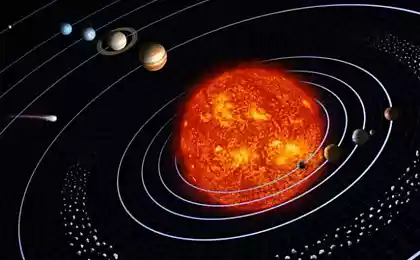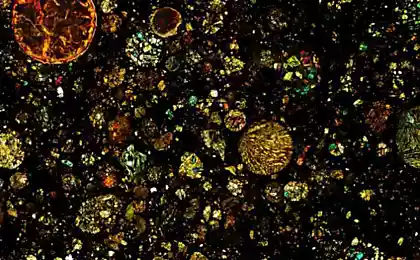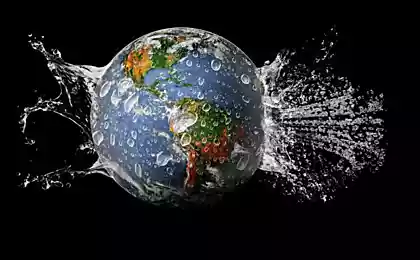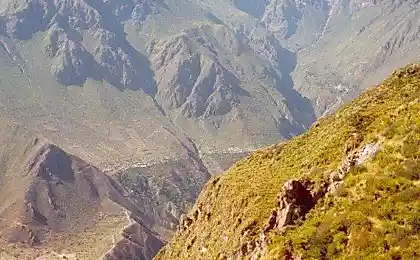1080
Ten questions about the Earth, putting scientists in deadlock
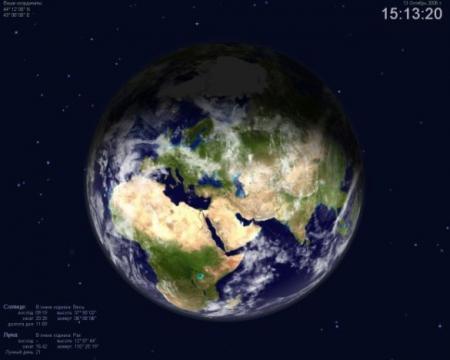
The new report of the US National Research Council has identified 10 questions that will drive the geological and planetologicheskuyu science. Having to reflect the most important scientific problems faced by the earth science at the beginning of the XXI century, these issues reflect the current state of things, as the science has come to him, and the direction in which further development can take place.
"Given all the discoveries made in the last 20 years, we can get a clearer picture of the world, considering it as micro- and macro-level from each atom in the minerals to the movement of continents and the growth of mountains, - says Donald J. Depaolo , professor of geochemistry at the University of California Berkli.- To science continues to move forward, we have to look back and ask ourselves fundamental questions about the origin of the Earth and life on it, the structure and dynamics of the planets, and the relationship between life and climate " .
The report was commissioned by the US Department of Energy, National Science Foundation, the US Committee for Geographic and NASA. The Committee chose the theme of questions, regardless of whether they belong to the sphere of activity of a particular department and covered their choice as a spatial spectrum (from the subatomic to planetary) and time (from the past to the present and future).
Committee by the geological survey of the community and long discussions finally allocated 10 questions. Some of the questions voiced challenge that scientists will be able to find only after many decades, if ever, can ever solve other it seems simpler and more visible progress can be achieved in the coming years.
How to form Earth and other planets?
Despite the fact that scientists in general came to the unanimous conclusion that the sun and the planets of our solar system were formed in the same nebular cloud, they know little about how Earth acquired its chemical composition, which would help to understand the process of evolution of the planet, or to answer When asked why the planets are different from one another.
Although there are now credible models of planet formation, a further measurement of bodies within the solar system and beyond it will penetrate into the essence of the processes that formed as a result of the Earth and the solar system.
What happens in "dark times" of the earth (the first 500 Ma)?
Scientists believe that in the early stages of its formation the Earth experienced a collision with another planet that was the reason for the appearance of the debris that became the moon and the earth melted to the core. This period of time is the key to understanding planetary evolution, especially how the Earth was formed on the atmosphere and oceans.
How life began?
Origin of Life - one of the most intriguing, complex and enduring questions in science. The only remaining evidence of where, when and in what form life first appeared, is the geological study of rocks and minerals. In search of answers to this question, scientists have turned to Mars, where the sedimentary rocks dating back to an earlier stage in planetary history - they are much older than the oldest rocks on Earth.
How to work the Earth's interior and how their work affects the SURFACE?
Scientists know that the Earth's mania and the core are in constant convective motion. Convection core creates a magnetic field of the Earth, which may affect the state of the surface and mantle convection causes volcanic activity, the formation of the seafloor and the formation of mountains. However, scientists can neither precisely describe these changes, nor calculate how much they differ greatly from occurring in the past. This prevents scientists to understand the past and predict the future of the Earth's surface.
WHY ON EARTH IS tectonic plates and continents?
Although plate tectonic theory is well understood, the scientists would like to know why the Earth has tectonic plates, and how does this relate to other aspects of the structure of the Earth, in particular an excess of water spaces and the existence of the continents, oceans and life. Moreover, scientists still do not know the date of the first formation of the continents as they remain intact for billions of years and how they will change in the future. This is particularly important due to the fact that the weathering of continental crust plays a significant role in regulating the Earth's climate.
AS MATERIAL PROPERTIES can monitor Earth processes?
Scientists have found that the cause of the changes at the macro level, such as plate tectonics and mantle convection, is to look at the micro-level properties of substances that make up the Earth, including the smallest details of their atomic structure. Further study of this trend is essential for understanding the history of the Earth and the creation of appropriate predictions of how planetary processes of change in the future.
What causes climate change, and how much it can change?
The surface temperature of the Earth over the past 4 billion years is in fairly narrow limits. But how she manages so well regulated such a long period of time? The study of climate extremes of the Earth, when the climate was extremely cold or hot or drastically changed, could significantly improve the existing model, which will allow scientists to predict the magnitude and consequences of climate change.
How life was formed Earth and how the Earth was formed LIFE?
Information on how geology and biology influence each other is still not known. Scientists want to find out what role was played by the emergence of life forms in the oxygenation of the atmosphere and land surface changes as a result of weathering and erosion. In addition, scientists are looking for understanding the geological processes that led to the mass extinction of individual species and their impact on the course of evolution.
CAN earthquakes, volcanic eruptions AND THEIR IMPLICATIONS be predicted?
In the matter of predicting the probability of earthquake it has made great progress. However, scientists still can not predict exactly when and where it happens. However, they do not cease their attempts to decipher as an earthquake begins and ends, and how much will shake in areas close to the epicenter of major earthquakes. As for volcanic eruptions, geologists are on the way to being able to predict them. However, they are still far from creating a clear picture of the movement of magma from its sources in the upper mantle, through Earth's crust to the surface.
HOW groundwater and their movement affects the environment?
Good management of natural resources and the environment requires knowledge of the behavior of liquids such as underground and on the surface, and scientists are trying to construct a mathematical model that predicts the behavior of a natural system. Until now difficult to predict how ground water is distributed in a heterogeneous rock and soil layers, how fast they flow, how efficiently they move dissolved and suspended solids, and how they change under the influence of chemical and thermal layers of the soil through which they flow.





